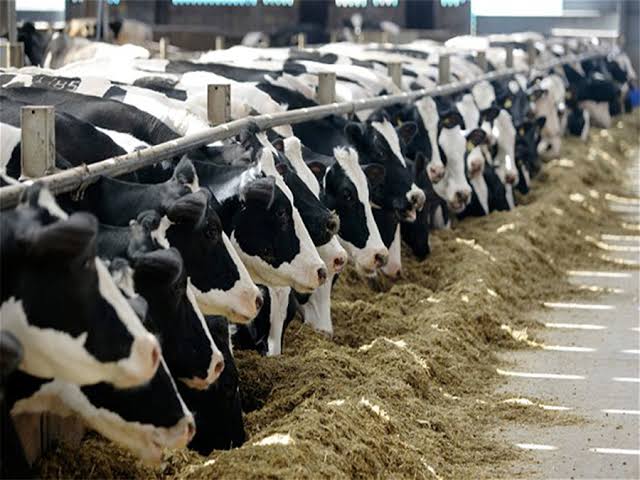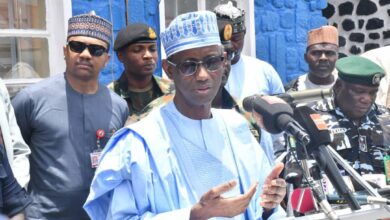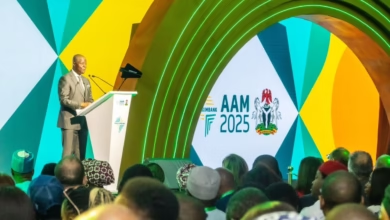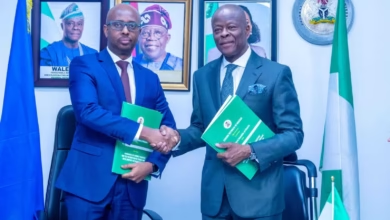
By Salisu Na’inna Dambatta
While the take-off of the ruga idea has been rescheduled by the Federal Government, these three words “Ruga” “Gaa” and “Omua” are denoting the same idea, which is a farm settlement or ranch in the North, South-West and the South-East, respectively.
However, the first, ‘ruga’ is deliberately isolated and twisted and made to look controversial.
The truth is that the livestock business benefits all parts of Nigeria in various ways. That is why 12 states of the country demanded for ruga settlements through which the business can be modernised. So, ruga settlement is purely a demand-driven project. The states that demanded for it officially are Adamawa, Katsina, Sokoto, Kwara, Niger, Plateau, Nasarawa, Kogi, Kebbi, Taraba and Zamfara.
It is therefore very surprising, if not disappointing, to many people who noted that the states that are inciting hatred against Nigerian pastoralists most vehemently are not part of the ‘ruga’ settlement project because they did not request the Federal Government for it. They engage in the incitement in the name of politics, Nigerian brand, mixing it with religion, regional identities and tribal sentiments. This raises suspicion that it could be part of a conspiracy to destroy the livelihood of fellow compatriots.
The state governors that are inciting the people in their states against anything from the Federal Government by using religion, ethnicity and other divisive tendencies are short sighted and hardly mean well for the people they lead. Their behaviour also raises the question about their fitness to hold sensitive positions of authority.
The deceptive pretence by some of the governors that the Ruga settlements were meant to grab land from communities and hand it over to livestock rearers is highly irresponsible given the high human tolls and massive destruction of properties resulting from violent communal clashes over land disputes.
One additional fact that exposes the deception in the rejection of the establishment of Ruga settlements is that, some of the governors that reject taking Ruga and its benefits to their states, own herds of cattle and hundreds of other animals in their private ruga, albeit on a smaller scale. They hypocritically deny ordinary citizens in their states the same benefits and advantages they gain from their ruga. This is not a mark of positive leadership.
The remark by Professor Wole Soyinka that “Ruga is going to be an explosion if not handled with care” has only exposed the dark side of his intellectual inadequacy. Wishing a crisis to erupt in his father land shows that his literature-based intellectual depth is of doubtful quality.
His comment has also exposed his ignorance and selective perception of truth when he forgot to acknowledge that Chief Obafemi Awolowo, the foremost leader of the Yoruba people, established farm settlements, including a ranch for livestock in the South West Region. No herder from anywhere grabbed an inch of land from there. .
His remarks that President Muhammadu Buhari should have lost his re-election over the conflicts between farmers and livestock rearers gives hint to the idea that the clashes were engineered for that purpose, which failed. And probably the current effort to turn a simple programme into a crisis, is a follow up on that.
It is my prayer and belief that using the ruga project to precipitate a bloody crisis in Nigeria as hoped for, stated or assumed by Professor Wole Soyinka and all others that share that wish with him, will fail. Nigeria will not be set on fire and the benefits of the ruga programme will be manifest in the lifetime of Wole Soyinka. He will live to benefit from the expectedly positive outcomes of the ruga settlement project, in the same way the residents of Lagos enjoy the benefits of the rice revolution in the country.
It is pertinent now to list some of the benefits of the ruga settlement, which some governors do not want the people they govern to benefit from. For instance, ruga will be a reliable source of high grade hides and skins for conversion to leather by tannaries clustered around the ranches, thereby providing raw materials for the Aba and Kano-based footwear industry. The more leather is sourced locally, the more affordable the prices of leather products will become.
Livestock confined to Ruga or ranches where they eat specifically grown fodder and get full healthcare services through resident veterinary doctors and genuine medicine, will produce healthier and tastier meat and, highly nutritious diary products.
A strong meat and diary industry will grow out of the ruga settlements which will curtail the marketing of unhealthy meat and save foreign exchange by minimising the importation of mostly unwholesome diary products. The settlements will equally enhance the production of livestock for export to countries that have made inquiries about buying goats, sheep, hides and skins from Nigeria.
The much-hyped and politically misused, but thankfully now waning conflicts between so-called herders and farmers would be minimised by settling much of the nomadic livestock herders in a controlled, conducive and convenient location. You can call it Ruga, Gaa or Omua, or the preferred description, ranch.
Cattle rustling, which is a source of distress by causing bankruptcy among tlivestock farmers in the country in the last 20 years, will be reduced, or even eliminated, by keeping the animals in secure ruga, ranch or simply, in an organised and protected confinement.
Many investors will go into the business of growing fodder, manufacturing animal feeds, the provision of vertrinary clinics services and drugs against animal deseases, diary processing and the packaging and transportation of meat. This will be good for every meat consumer in our country.
This item is concluded by reminding the reader that, ruga is not a new idea, it is not about taking away land from Ekitis and handing it over to Oyos or to Igbos. Ruga settlements will be established only in states that demanded or requested for them. If Edo, Rivers, Ekiti, Benue, Enugu and any other state in any geo-political zone does not request for it, that state will certainly not get one. So how can it cause an explosion or set the country on fire?





